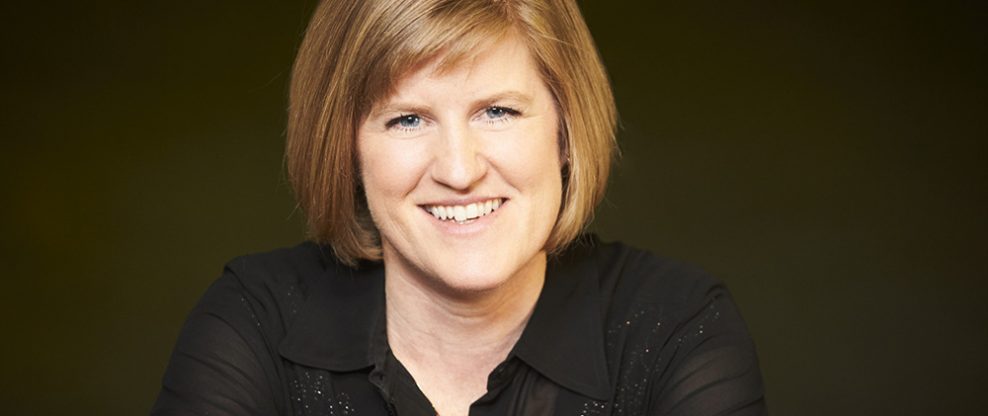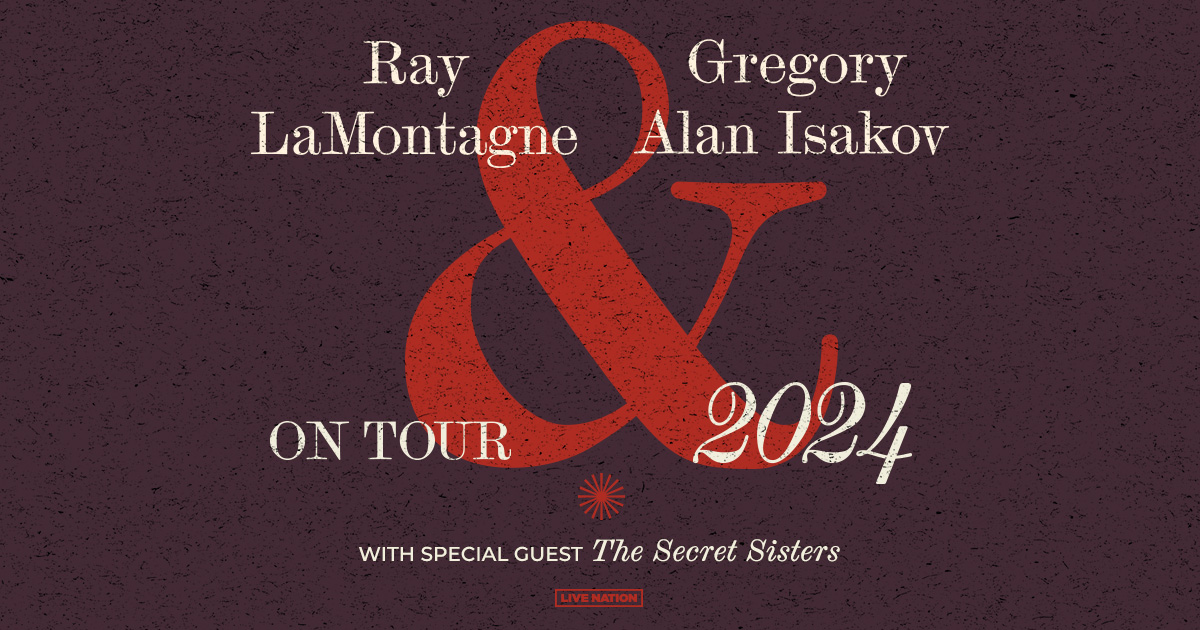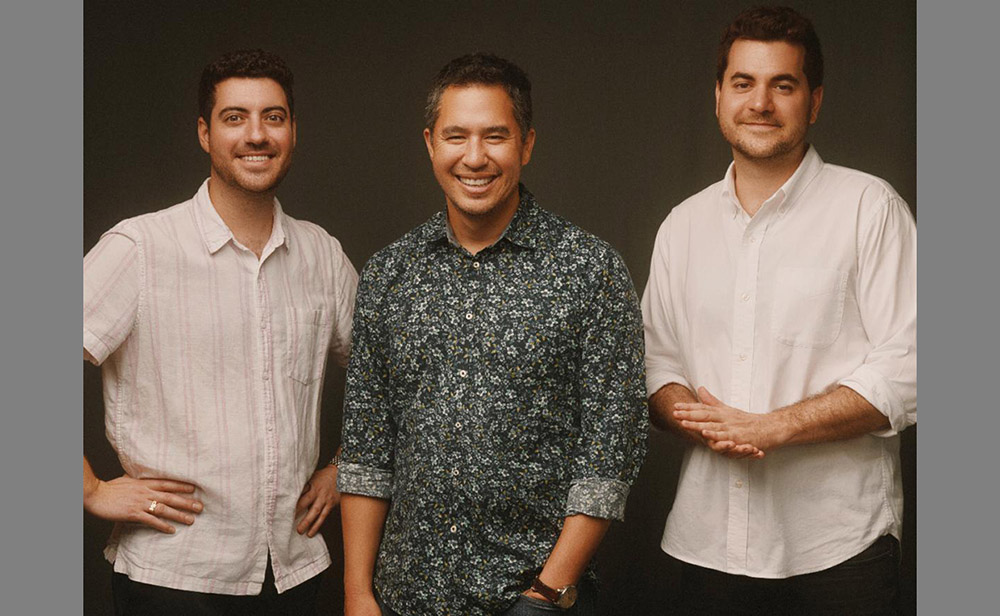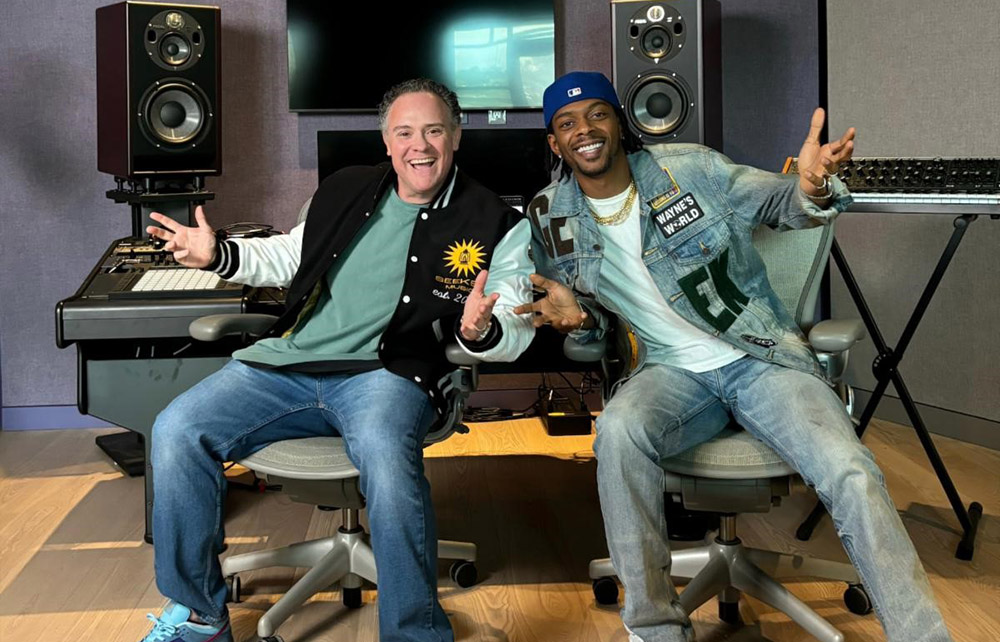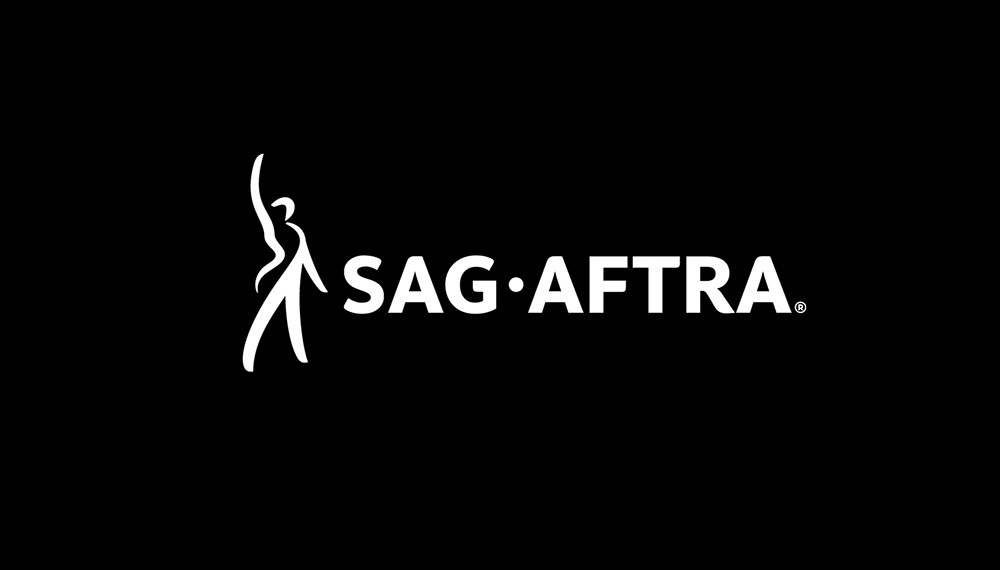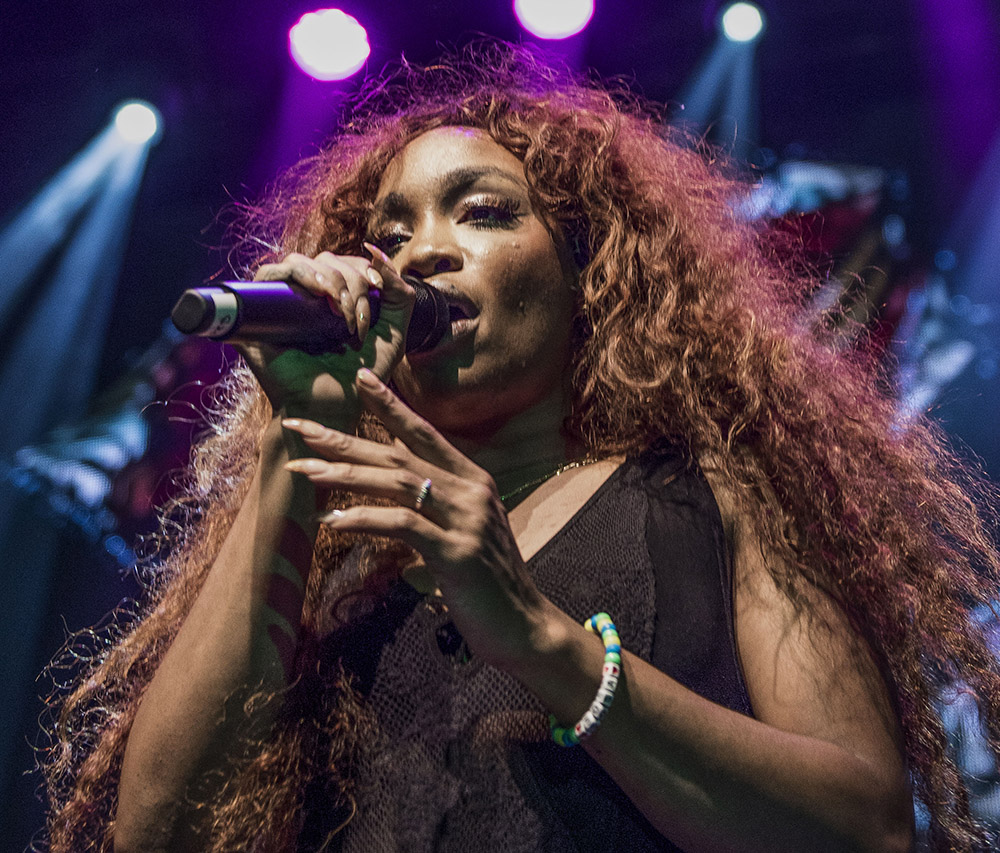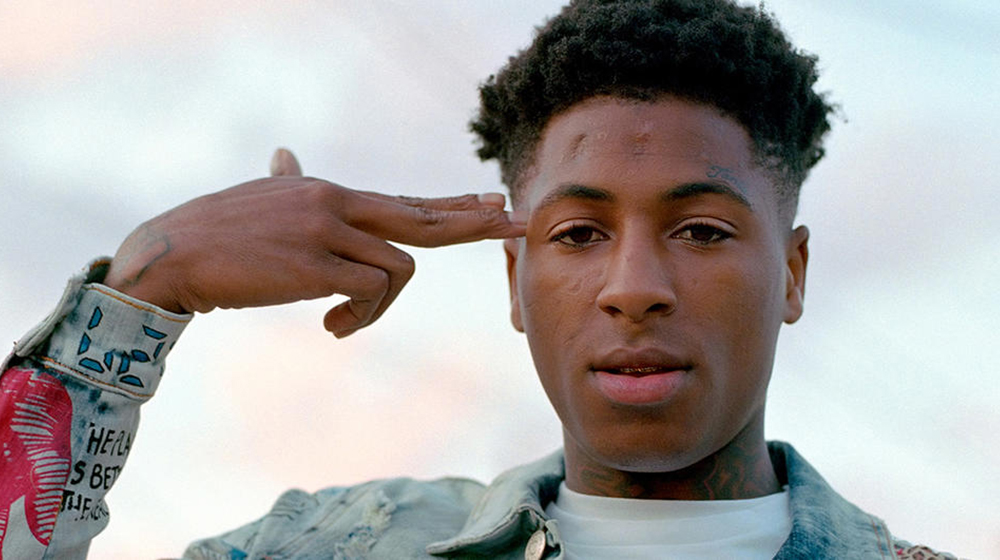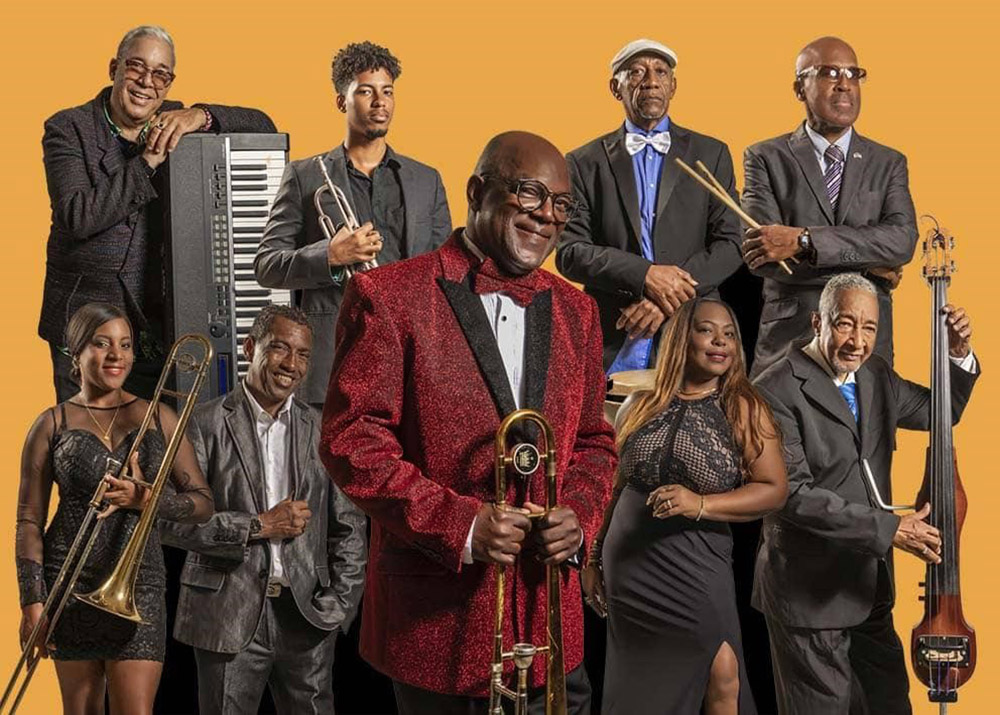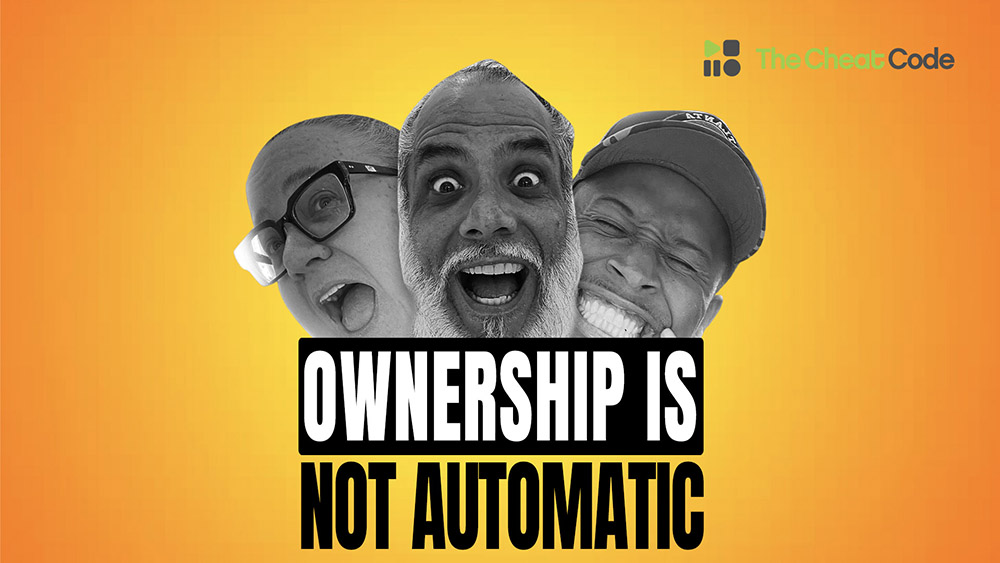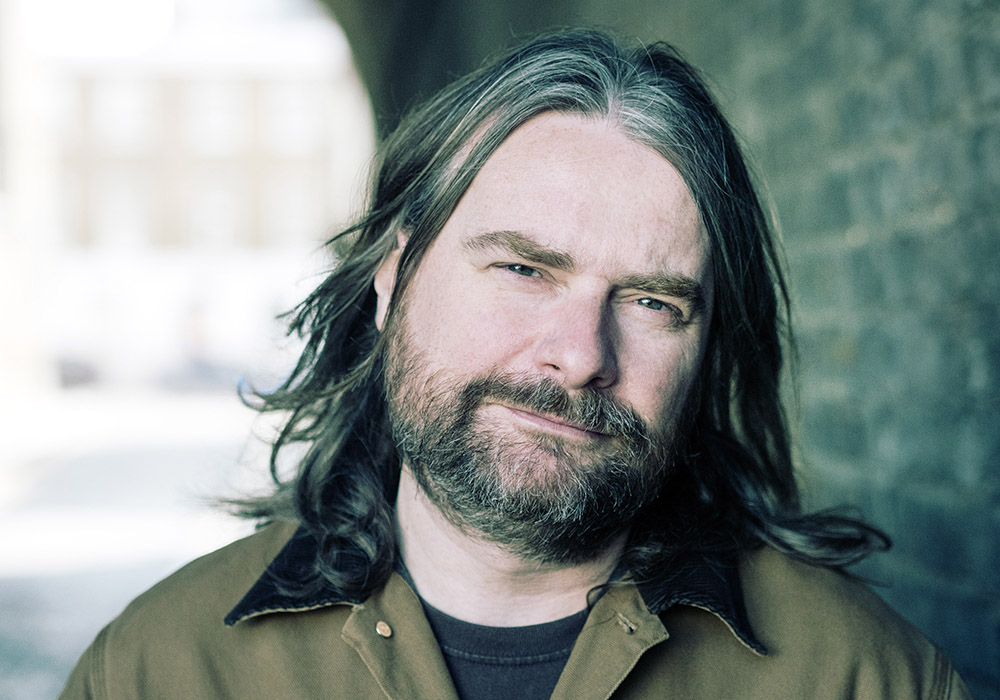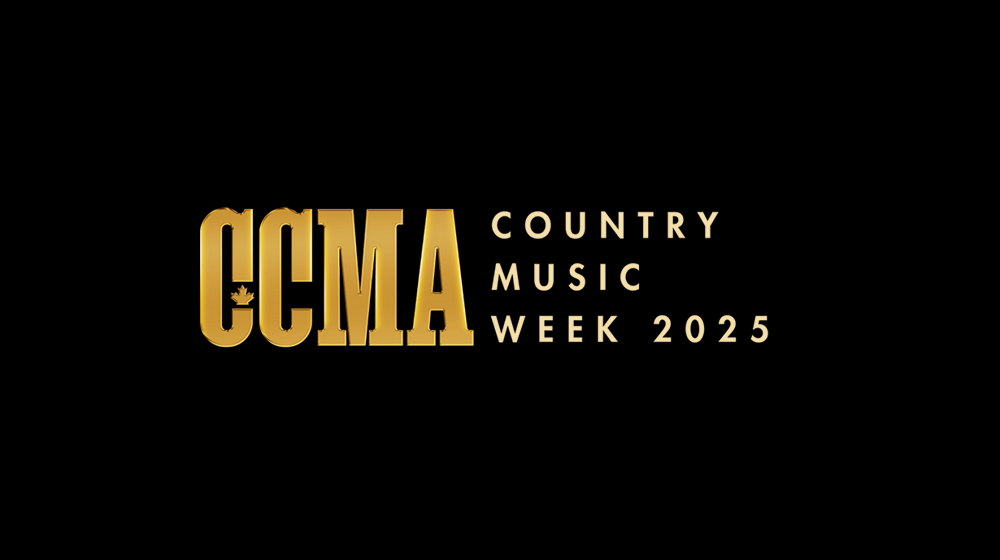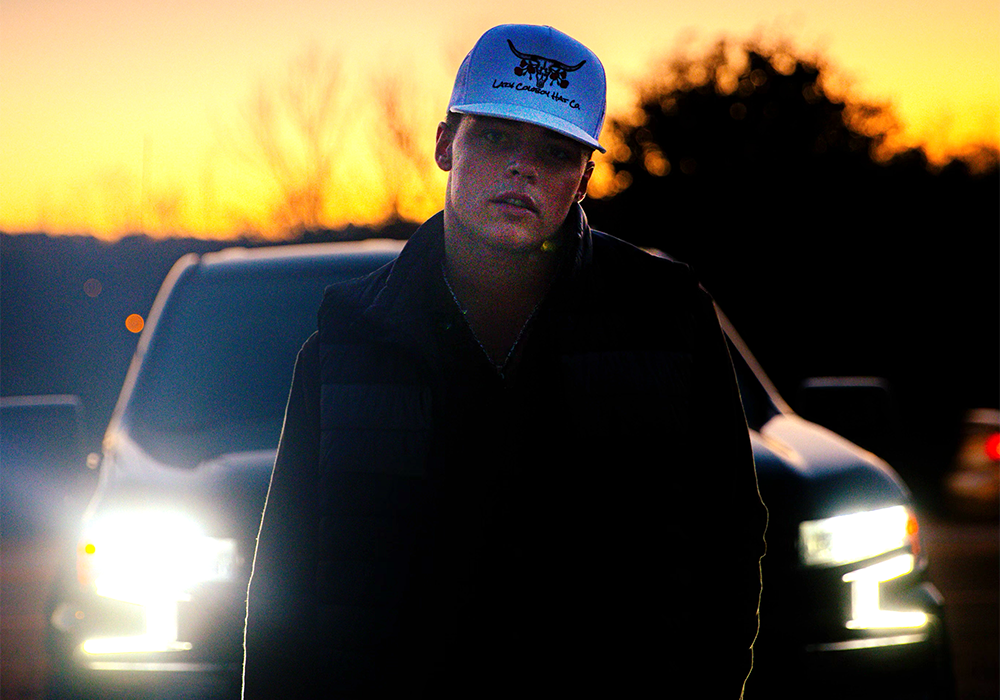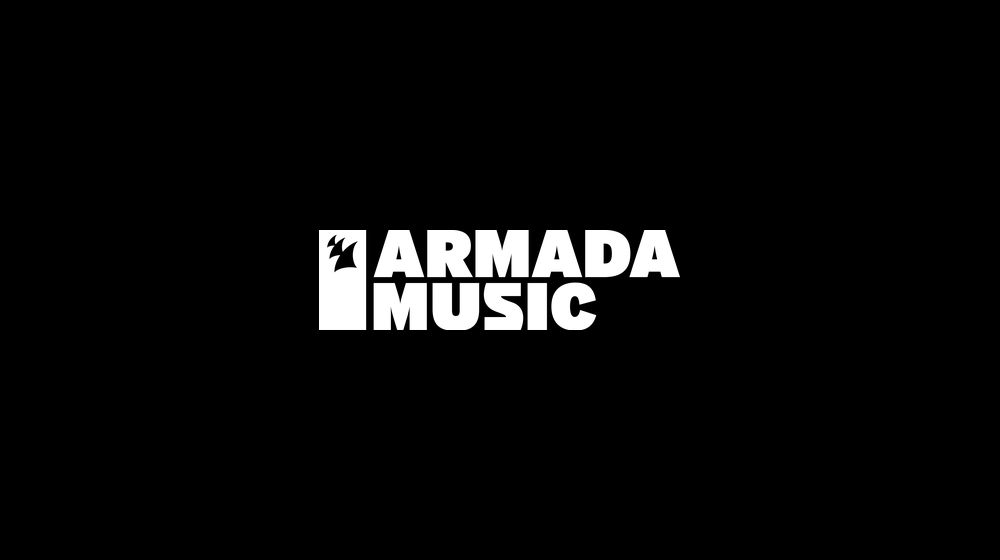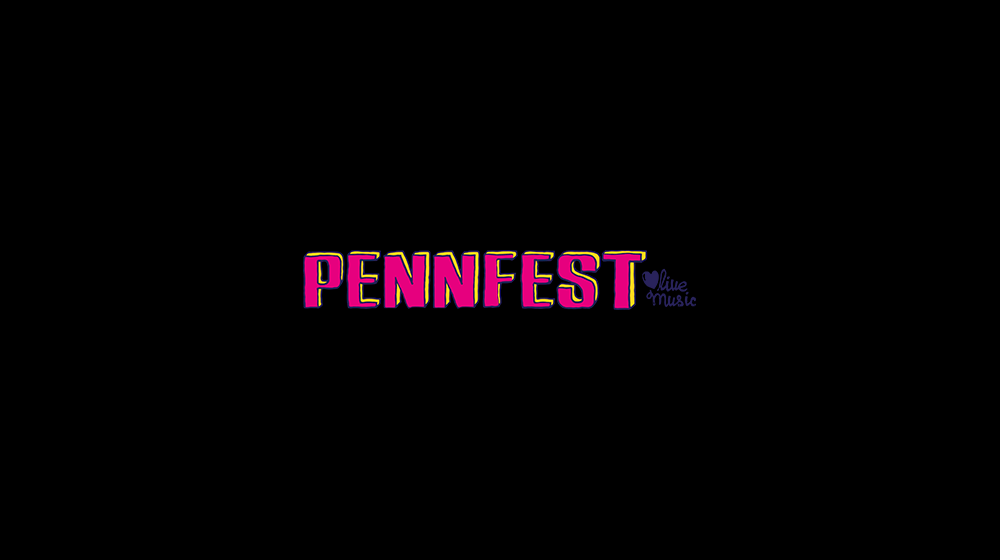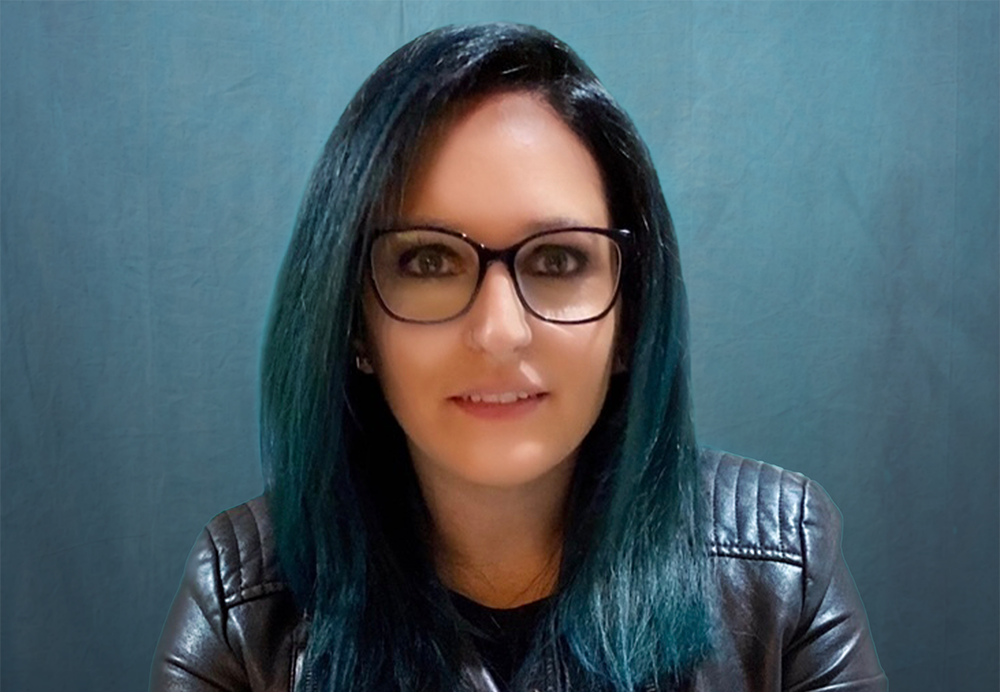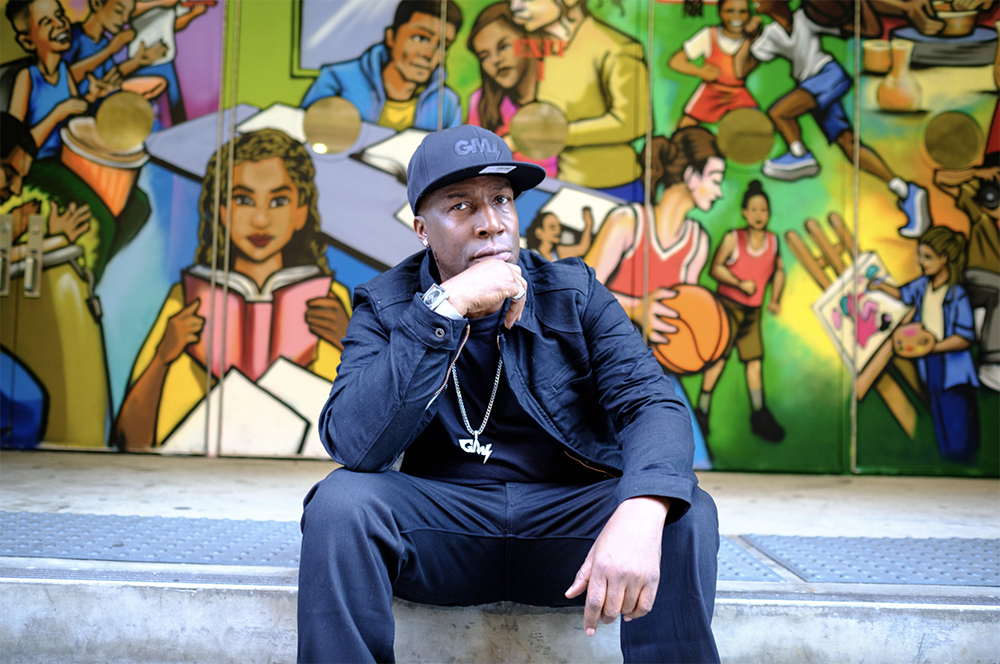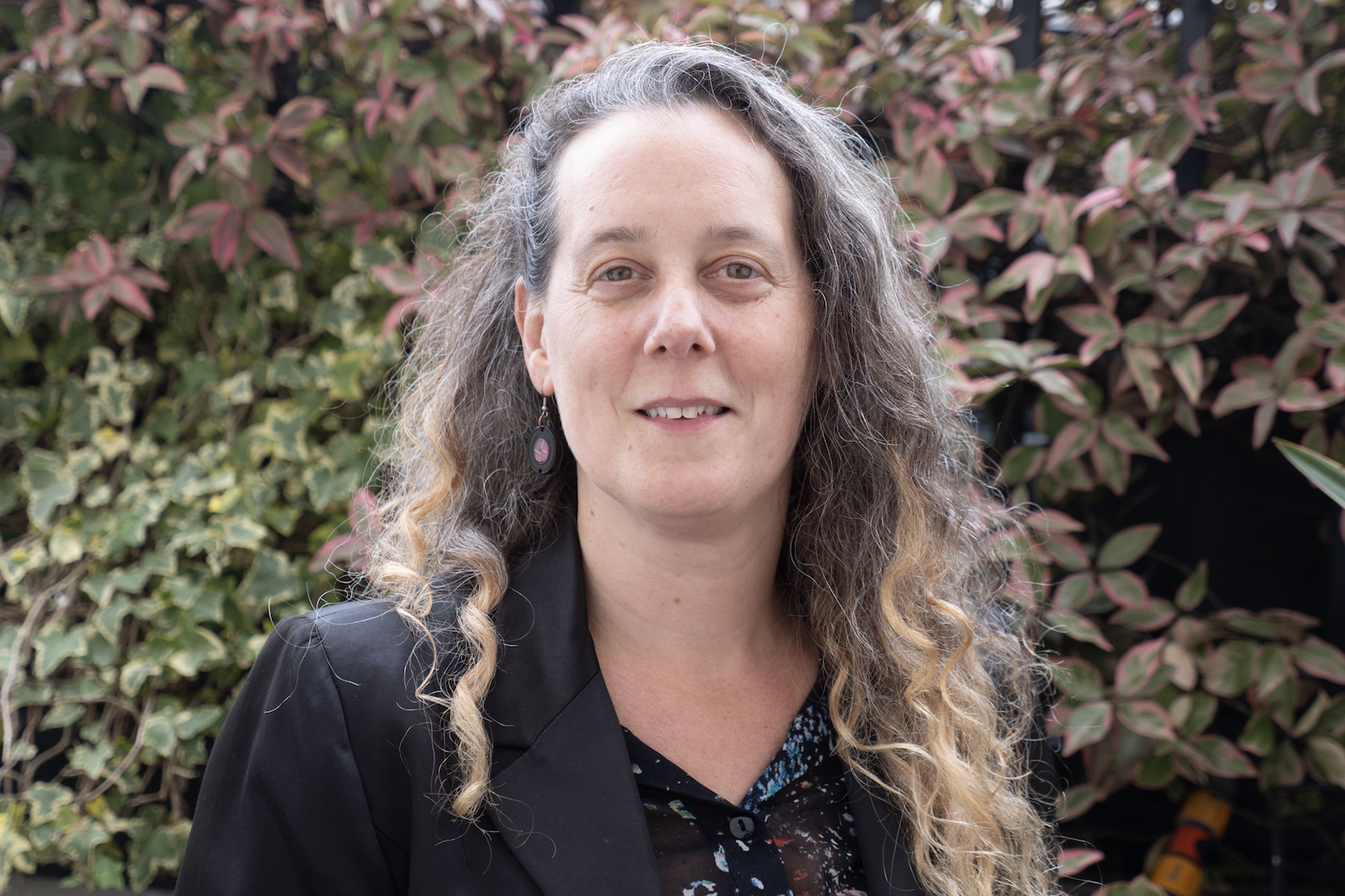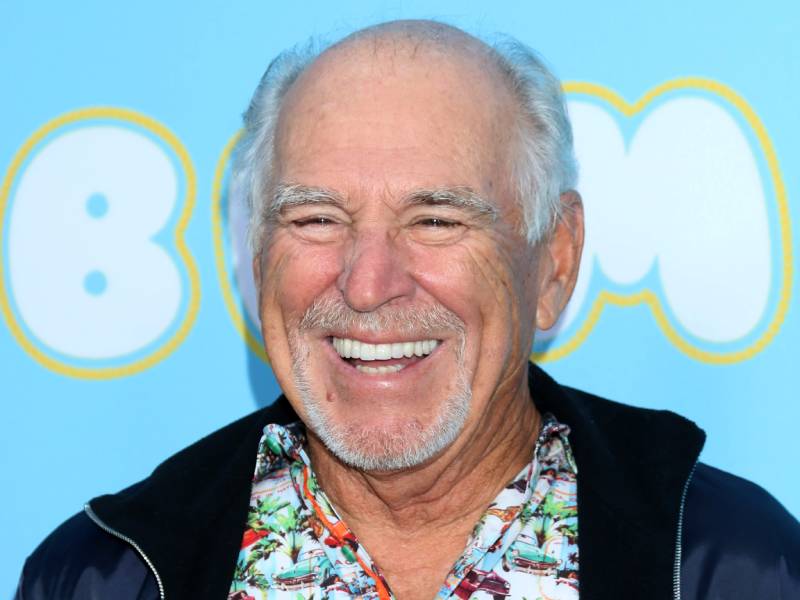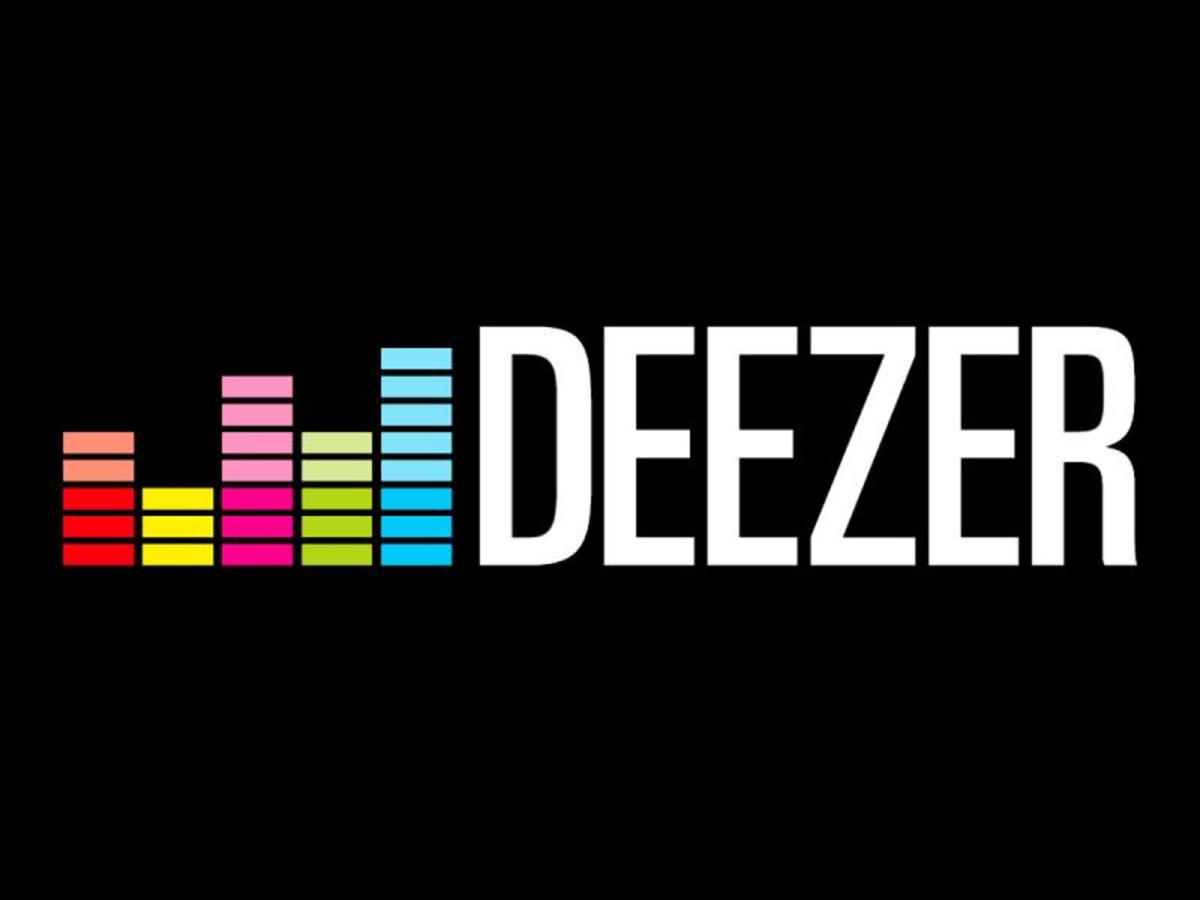This week In the Hot Seat with Larry LeBlanc: Patti-Anne Tarlton, Chief Operating Officer Ticketmaster Canada
Canada’s Patti-Anne Tarlton may be the best utility player in live music today.
Tarlton is somebody who can book and promote events, run a top-tiered sporting and entertainment facility, and even do tour accounting in a pinch.
She’s also able to advocate for the live music industry before Canadian provincial and federal government committees.
Tarlton, who has overseen Ticketmaster’s Canadian business and operations as chief operating officer since 2013, has spent her career as a concert promoter, venue operator, and sports and entertainment executive in Vancouver, Montreal, and Toronto.
Today, Tarlton oversees the business operations of Ticketmaster in Canada being in charge of the features and products that Ticketmaster deals in, including the technology used to sell and market tickets.
Prior to joining Ticketmaster, a member of the Live Nation Entertainment family, Tarlton headed up the live entertainment division of Maple Leaf Sports & Entertainment in Toronto for 13 years.
Tarlton got her start in live music as a summer student at Perryscope Concert Productions in Vancouver. She followed up with stints at DKD Concerts in Montreal and the House of Blues Concerts in Toronto.
Tarlton currently serves on the Advisory Board of Musicounts!, and on the boards of Music Canada Live, and Woman in Sports & Events (WISE). She is a member of the Toronto Music Advisory Council.
During Canadian Music Week in May Tarlton was inducted into the Canadian Music and Broadcasting Hall of Fame for her contributions to Canada’s live music sector and, perhaps, in recognition for being the ace live music utility player she is.
You made the jump from Maple Leaf Sports & Entertainment to Ticketmaster in 2013. Any trepidation about moving to the ticketing sector?
I must say that I have gone around the table. Most people start at the bottom, and go to the top, with the top of the food chain being a concert promoter, of course. I might have gone the opposite direction. It was a few years after the Live Nation and Ticketmaster merger (in 2010). In the end, it was 13 years for me at Maple Leaf Sports & Entertainment, but I had seen some real development in the States with the new (Ticketmaster) leadership.
By the end of 2013, Jared (Smith) was named president of Ticketmaster North America. He was then COO.
Yes. I saw more momentum that was happening in the States that wasn’t happening here. I was running a Top Five arena business in North America (Air Canada Centre) and it felt like we were still a step back being on this side of the border. So I started pushing and pushing. I joked with Jared. I don’t know which came first; me saying, “You haven’t solved Canada, yet,” or him saying, “Well, if you have all of the answers, why don’t you come and do it?” For me, it was an opportunity to work nationally again. The organization had kind of gotten quiet over time, and I really was looking to have it re-engaged in the industry. Instead of saying you are at the bottom of the food chain; or you have been through all of the battles, and you are barefoot on a gravel road, look at it (the business) as the nucleus or the heart of it all. Knowing that you need all of the limbs, and the brain powers of the content owners as well. But that we could service it.
Was the ticketing business in Canada then undeveloped?
To this day, it’s a hard market to get into because the population is sparse, and spread out. You just can’t get the scale. So each of these ticket companies that are out there–there’s more competition than there has ever been–they will all take their own niché (in sports and entertainment). I suppose from our perspective that we are in each of those businesses, and we are trying to connect them all together.
When you joined Ticketmaster Canada the company soon had a core of impressive clients that included the Credit Union Centre in Saskatoon, Saskatchewan; Brandt Centre in Regina, Saskatchewan; the Centennial Concert Hall in Winnipeg, Manitoba; and Roy Thomson Hall, and Massey Hall in Toronto; and BC Place in Vancouver. How have you expanded that base of clients?
Ticketmaster did have a good footprint in the arenas, in sporting. There were some obvious holes that had been dug 10 to 15 years previously which were close to my heart. Ottawa was one of them, and Montreal was another. Having been born in Montreal, and with my days at DKD, those were venues and markets that I had done a lot of work with in my earlier career. So I knew that it would be paramount for me to bring them back into the fold. We are successful in having a business relationship today in Ottawa with the Ottawa Senators. We re-invented their Capital Tickets model, and are now in a partnership with them. And we are doing some business with evenko at Place Bell which is their secondary building that they have built in Laval (Quebec). It’s a beautiful building (a multi-purpose sports facility which includes a 10,000 seat main arena). The building has all of the qualities you’d expect in a major market which is amazing. We hope to expand our business with evenko (which presents more 1,200 events annually throughout Quebec, Atlantic Canada and the eastern United States.).
The other area of expansion since I’ve been here would be in the festival setting. In 2015, Live Nation Entertainment, acquired frontgatetickets.com as part of that C3 acquisition. We have since deployed this festival technology on 20 festivals across the country. That same year, we also acquired a do-it-yourself ticketing platform, universe.com, based in Toronto. So we are expanding into that registration setting or it could be tailgates with clients that we already have. Those are real opportunities that grow into bigger opportunities.
Then, of course, we have had for some time a club technology in TicketWeb (customer interface), and we have attracted some great talent into that part of our organization. We’ve tripled the volume of tickets using this technology with deals with independent promoters such as ink, Embrace, and the Phoenix team in Toronto as well as Blueprint, Atomique and Timbre in the West. There’s always a constant interest here in getting into new venues, and markets.
Prior to the Live Nation/ Ticketmaster merger, there was significant pushback from some of America’s leading independent concert promoters who were fearful of a competitive edge from Live Nation.
I think we’ve dispelled all of those fears, and we are in business on its merits.
Was there a similar pushback in Canada?
Very little.
Well, Live Nation has had an enormous footprint in Canada. As well, many of its leading executives are Canadian.
The interesting thing here is how promoters engage with venues. Live Nation, the biggest promoter in the country, has only two venues that they own outright, The Commodore Ballroom in Vancouver, and the Budweiser Stage here in Toronto. The rest are partnerships. They have on-going relationships with venue operators across the country that keep them in business. It is less like America in that one promoter has this venue, and another promoter has that other venue. In Canada, you still see multiple promoters working in a single venue. The “exclusivity” of a venue, you will see less in Canada than you do elsewhere.
Live Nation principals based in Los Angeles, Michael Rapino, Steve Herman, and Arthur Fogel, are Canadian, and know Canada’s live music market well from decades working there. AEG Live’s Debra Rathwell is a Canadian who worked at Harvey Glatt’s Bass Clef Entertainment in Ottawa, and at DKD in Montreal. Both AEG Live’s Jay Marciano and John Meglen passed through Toronto in their careers. These executives understand Canada’s live music marketplace because of their experiences.
That’s right. Years of setting, and delivering on expectations. Maybe sometimes you have a hiccup here, but you fix it. You are right. There’s that history here that continues to help repeat the business. That’s helpful. I think some of our secondary markets in the country outperform some of the bigger markets in other places in the world; based on those relationships, and a trust that has been built up over time because when you (artists or a manager) come here (to Canada) it will be an easy day, as opposed to, “It’s going to be a disaster.”
Is the Ticketmaster litigation with Canada’s Competition Bureau settled or ongoing?
It’s on-going.
[In January, 2018, the Competition Bureau, the independent Canadian law enforcement agency, took action against Ticketmaster and its parent company, Live Nation, for allegedly making deceptive claims to consumers when advertising prices for sports and entertainment tickets. The Bureau argued that Ticketmaster’s advertised prices were deceptive because consumers must pay additional fees that are added later in the purchasing process. This legal action followed a public statement by the Bureau last year which called on all Canadian sporting and entertainment ticket vendors to review their marketing practices and display the real price of tickets upfront.
Why do you think that Ticketmaster was singled out?
The Competition Bureau would have declared that they wanted the entire industry to go the same way as airlines, and online travel car rentals. So the ambition is to move the entire industry. We just happened to be first on the list.
Has this action by the Canadian Competition Bureau changed your business practices, knowing they are sitting on your shoulder?
Not commenting on the action itself, but there are very specific and fee displays that were applicable in the Ontario legislation that just rolled out (which requires all sellers to disclose the original face value of tickets, so customers know exactly how much they’re being charged). So we have developed against that, and we have rolled that out consistently across the country. There’s also very clear legislation in Quebec that we have developed against as well. We are continuing to update our fee and pricing displays with the expectations of consumers, and local legislation.
Ticket laws in Canada are decided independently by each of the 10 provinces, Some disallow businesses from selling marked-up tickets to consumers, and others do not address ticket resales in law. In the last few years, each of the provincial governments have become very interested in ticketing legislation, and the consumer protection around legislation due to consumer complaints.
That’s correct and there’s a balancing act between the sound bytes that can resonate in media and on the government legislative floors, and reality. We are trying to marry education with what we know will end up being populist decisions by governments because they also need to get voted in…
Every four years unless a vote is called earlier by the province’s ruling party.
Every four years, exactly. That whole process I spend a gross majority of my time on, and that is because you just have to stay the course. It’s a long game, and yep, with a change of government, you have to press “restart,” and have the energy to go back to the beginning of the alphabet and walk all the new players through it from A to Z.
Ontario proposed a sweeping series of ticketing rules into law in December 2018 that included banning ticket-buying bots, and mandating a price cap on resold tickets of 50% of the original price. However, as of July 1st, the new Ontario government under Premier Doug Ford pulled back changes in the ticketing law. While the new legislation requires ticket sellers to be clear about the total cost of tickets, only the pricing cap that the ticket price can’t be sold past 50% of face value was pulled back?
Just the one change. They have only put a “pause” on the resale cap which is a pertinent move because that wouldn’t have the outcome that the earlier government was looking for. If the idea is to soften the resale market, that isn’t the approach.
[In recent years, with sporting and entertainment tickets being largely purchased by consumers online, ticket scalpers have been quite active in buying tickets with the help of computer programs or bots.]At the same time, each province is grappling with similar ticketing issues.
Absolutely, and I would say that all but Ontario have dropped the idea of trying to somehow manage the secondary market because they all realized that free market will prevail. We are in a global economy for live events: It’s not just about the one ticket. It’s about attracting the live event to the city of choice, and so we are better as an industry if we are able to focus on how to make the venues that we work in, the cities that we work in, be attractive to both the artists that are touring, and to the fans that want to come out. Let’s not forget that when you are using your own disposable income, if there are 12 hurdles to jump over, you are also going to say,” Forget it. I am just going to go and have a nice dinner. I’m going to watch the game from home. I am not going to invest money on this friction-filled live event experience.”
Is it helpful to the ticketing market that these things are at least under discussion, and a path toward a clear solution is being attempted?
Absolutely.
With each province at a different stage in dealing with ticketing do you see any light of the provinces being the same page?
Timing wise, I think that if only we could get to a federal (national) state. For example, in America, there is a federal bot legislation which doesn’t have many teeth in it. It hasn’t arguably been effective yet. With a lot of our provincial governments across country: B.C. is looking at it; Alberta it’s being proclaimed August 1st. Saskatchewan has its own ideas on this. Ontario has bot legislation, and Quebec has just instituted some updates that have bot legislation in it too.
Each of those look a little different but they are the same goal which is, “Hey call that (using bots) illegal.” At least it is a step towards trying to get tickets in the hands of fans. To the extent that we could do something federally that would be more effective because ultimately it’s a global issue. It’s not even a provincial issue. It’s not even a federal issue, but if the feds could figure it out, you could capture a country (with legislation).
In 2016. Manitoba’s ruling Progressive Conservatives indicated in their throne speech that they wanted changes related to secondary ticket sales. The government hasn’t yet come forth with legislation?
They haven’t.
Kevin Donnelly, senior VP of venues and entertainment at True North Sports and Entertainment in Winnipeg has argued that Manitoba’s government should change the law to allow legal ticket re-selling.
Manitoba is the last of our provinces where there is a population going out to live events, to sporting and entertainment events, that resell is still illegal. Kevin has been very vocal at fighting scalpers, and fighting for the local fan which is obviously what everybody’s’ goal is. How to do that is another thing. So when we talk about bots, it’s a technology solution. We call that “an arms race.” Our technology is never going to be done because there will be a “cheater” trying to get through the system to circumvent the rules set out by that talent saying, “I only want any individual able to buy four tickets.” And this way (with bots) you are able to get through the system, and buy more tickets. Those kinds of legislative measures that say, “Hey, it’s illegal “ allows people to conceal those tickets. We will continue best to try, and block those tickets in the first place. We are making progress, but we never deem that it’s over because it’s just the new norm.
There has been little uniformity between venues and ticket sellers which probably has probably fostered the re-seller marketplace.
That’s correct. We did establish a live music association a couple of years ago with Music Canada Live with Erin (Benjamin) leading it. That has had its successes. It is in its infancy as an association, but it’s there to bring a common voice of live events to government advocacy, to media awareness etc. In associations like that, you do see competitors sitting beside each other realizing that there is a greater good that we are trying to accomplish here.
Ticketmaster and StubHub have been at the forefront of lobbying the provincial governments in modernizing and enhancing consumer protections related to secondary ticket sales.
Interestingly, they are lobbying for it. Where we reunite really is in that ambition to please fans. Now sure, as a third party, resellers have benefitted by mass purchases so that will negatively impact them. It’s a fact of life. I think to a large measure that they certainly understand their business will change with these new legislative measures but they are not vocal fighting against those things.
They know it’s a fan-based silo that will come to them anyway.
Absolutely. Interestingly bots themselves attack primary ticketing more than secondary because the goal is to jump in on that high demand sale; whereas in secondary, you’ve got the leisure of tickets that are posted, and you can make your own decisions as you go.
Who wants to buy a $100 ticket at $200 that can’t be flipped.
That’s it.
Ticketmaster believes the key to stopping scalping is controlling the pace of sales. To that end, the company introduced Verified Fan by which fans must register their interest in an event, and then Ticketmaster analyzes the ticket request, and those selected receive a code and specified purchase window. Verified Fan was used on 65 tours of North America in 2017. How does Verified Fan work?
That’s right, so what we have put into production is how to change the dynamic of the on-sale itself. An example we have done development toward and have put into production would be Verified Fan and its pre-registration approach. So you are trying to take the process of putting your credit card down and registering outside of that high-end anxiety 10 A.M. high demand moment. To take some of that anxiety out of the purchase for one; but number two, it gives us time to get the (past interaction) information, and compare it against the fan club information to try to predict if this is a human or not. That one is easier than saying, “Is this human?” Would they have the intent to just slip and resell or do they have the intent to go
The Bruce Springsteen underplay on Broadway (which started at the end of 2017) and tours by Taylor Swift, and Ed Sheeran, those are examples of success using that Ticketmaster Verified Fan because we saw fewer tickets on the secondary market. In the case of those examples, they don’t even have our resale tool switched on. So when we say that we see tickets on the secondary market, it’s other third parties where you can still go and trade tickets. If somebody is willing to buy there will be an opportunity to buy somewhere whether they follow the rules or not.
Ticketmaster Presence is centered on entry point analysis?
That’s it. Instead of using this anonymous barcode to get into an event, you are using a a digital pass that exists on a mobile device instead of a paper ticket. This will become more sophisticated over time and with this you can just walk through the (venue) door because your phone has NFC (near-field communication) or even more advanced technology in it. But you have to be known. The anonymous nature of the past, even five years ago….if we had doubled down on that strategy of every person going into a venue needs to check in, I don’t think that the fans were ready for it but…
Close to 17 billion bots were identified, and blocked in North America in 2017, compared to 6 billion in 2016. Despite this advanced vetting to confirm you are a human and not a bot, you trying to not let bots buy tickets in the first place, but it is like playing whack a mole.
Yes, it’s hard. We fight “cheaters” who write scripts to try to get around the security systems with the bots. That is table stake today for us. We have to do that. And, as I said, it is never over. We will have to continue to invest in that (secure ticketing technology).
Well, there was an earlier attempt at limiting scalper with paperless ticketing but many consumers argued that they should have the right to give way or sell their tickets.
Now fast-forward to today for security measure reasons, public facilities will say “I need to know everyone that is in the venue.” Whether we have deployed that all (technology) across the world, Canada and North America, we haven’t yet, but that is the direction that it is heading. Not for Big Brother watching, but for security. For anti-fraud, for the queues. The benefits will be curating the fan experience. The magic will be when we can curate that consumer experience inside that event to your benefit. “Hey, there’s no line-up over at this bathroom. Go over here for your sushi etc.” At a festival site, they would even be able to tell you where the shade is.
Wearable technology, an RFID wristband to accept cashless payments, didn’t turn out to be a game changer for promoters as predicted.
Yeah, and I think the RFID wristband might end up getting surpassed by where phones are going or where wearable technology is more permanent than just temporary wristband, perhaps. The industry has dabbled with cashless, but we feel less about cashless in Canada because we have had tap-and-go (bank cards) for many years.
Canada’s banking system made cashless a part of life for Canadians.
It is cashless to the extent that you use a credit card or tapping with your phone, but it’s less about saying, “Hey, I need to have a wristband that I can register my credit card against so as to not carry cash.” There are other ways to accommodate that same ambition.
Ticketmaster Canada, along with StubHub, has argued against price caps. While, perhaps, having price caps would interfere with the free market, they could also push consumers, toward other ticket sources without consumer protections. The challenge of scalping is that we are living in a digital world. Also, if people want a ticket bad enough, they will pay whatever they can for it. “If I have to pay $500 to see….”
That’s it. “It’s my own money. It’s my disposable income. It’s my choice. All I ask you is to make sure that I get in with that.”
Another challenge is consumers wanting tickets available at all times.
That’s it.
At face value by the way.
That’s right, and as ticketing technology company, that’s what we are trying to continue to deliver. The goal of Verified Fan is to try and predict the propensity of that person that bought that ticket to actually going to the event. Therefore, they are not just flipping it to resell it. This is using data science to understand whether we think that person that goes to the event is as opposed to restricting them in any way. Of closing the loop etc. It is our job to try to deliver tools to artists that say, “I want to keep that ticket at the price that I set it for.” It’s also futile that you think that you can legislate supply and demand or legislate pricing. Instead, we are continuing to develop market tools that can market price tickets. So if an artist says, “I’m not even sure what the demand is in this particular market. I want it (ticket sales) to be flexible as possible to maximize my revenue.” we will be able to maintain, and continue to do that up to the event in real time.
If a ticket’s face value is $100. but it re-sells for $300 or $400, what is its true value? Escalating scalping activity by bots along with diminished music sales has led many artists to try to maximize ticket sale revenues. “Have we been selling our tickets too cheaply?” Often, that’s a legitimate question.
Right. I make the comparison between sports and entertainment. In sports leagues, there’s a commissioner that tries to collect the teams in the vision of the teams and drive that league forward. There’s isn’t a commissioner to the music business or in Broadway, and so forth. Each of the acts are individual bands, right? Each are individual businesses that have their own cycle in touring, and they have their own cycle in their careers or dealing with different markets. Every market may be different for each of them. There isn’t one answer to all that. Then there are some artists that want to keep the ticket price low, and we have to deliver against that. There are others that say, “I have priced my arena shows with only three different price points, but I see with a Broadway theatre that there are 2,000 tickets, and there’s 12 price points. Maybe, I should be doing more dynamic pricing and, maybe, if I did do that I could get more money for the front of the house. Maybe, if I kept my ticket pricing lower at the back of the house, and tried to do that in a dynamic and/or in a live way, we would see that work with (increased) earnings.” That is where the live ticketing industry is going in keeping with the technologies that you see deployed in on-line travel. It would be the same concept in (entertainment and sports) ticketing. You would then need to defend that. Not every artist wants to defend that, “My ticket is worth $600.”
In 2012, many Rolling Stones fans balked at paying $600 a ticket for the “50 and Counting” run of North American shows. This year some UK fans howled after tickets for the band’s latest stadium tour emerged on reselling websites for more than £1,000 ($1,302 US)
The interesting thing is that you see news clips that ticket prices are now “outrageous” but these ticket prices were always outrageous. They just weren’t tracked. It was some guy on the street (scalping) and that wasn’t being quoted…
Back to the $100 ticket re-selling for $200 to $400 through resellers. What is the true value of that ticket? As long as people are willing to pay more than face value, scalpers will flourish and profit. This is supply and demand 101.
That’s right. And the idea that some government might say, “We want to have affordable tickets for everyone.” That’s not real unless governments are going to get in the game of subsidizing talent, but then we are in a world market. We are competing against other cities, and other countries where that talent can go and make a living. To your point earlier, where they (artists) make their living today is in touring.
In 2016, the producers of “Hamilton” sharply increased the cost of the best seats in the house, raising the price for premium seats to $849 US. Well, tickets are still hard to get. Further supply and demand 101.
That’s right. They are impossible to get.
Ticketmaster is a global product, and you are part of a global product team. Are these the issues that come up when Ticketmaster has its global meetings?
Absolutely, and we are fighting a global battle against those who are writing (bot) scripts. To put it simply, if there’s a price discrepancy, if something has been underpriced, and there is an opportunity to capitalize on that, there’s someone in the world that is trying to capture that; other than the ones that deserve it which would be the artists, the content owners, the teams, the Broadway shows etc. Our goal is to try to find technology that they can adopt that is frictionless for fans. So those tickets can stay with the intended buyer, and the intended fan. Get the tickets in the hand of the fan, and get that fan closer to the artist, and the artist closer to the fan.
When tickets are high-priced there should be a concern of scaring off a generation who can’t afford the tickets.
Well, I would also say that we tend to oversensationalize the entire industry because we talk about the Top 10 of 5% of high demand events.
Yes. but many people today have never been to a hockey or baseball game. Tickets were once more affordable to them. Not so much anymore.
Two different topics, right? Affordability and access ability are two different things. Housing in Toronto is less affordable than it used to be.
Perhaps people can afford a $600 event ticket, but they might not see the value proposition of paying that amount.
That’s a fair point. So if you can’t justify that then the event has to rethink the value proposition. That is what will force prices back down. If you say “I don’t want to invest that much money. I can pay a mortgage payment with that.”
But others will pay for high-priced tickets. There’s the argument that the live music and sports businesses today are super-serving a tier of people who do have that kind of money.
Right, and I would say that is the place that we are trying to manage around, the upper, I would say, 10% of live events, sports, and entertainment. This still leaves the gross majority of the event opportunities. Then with the other 90%, we are trying to get people to be aware that the events are coming. Or, if it’s a junior sporting event, those things can be fun too. It is important that we continue to not lose sight of people wanting value, whatever that is. Is it value for $10 or is it value for $600? When the value proposition is askew, that is when people are going to say, “Forget it. I will do something different.”
I once asked (Canadian promoter) Michael Cohl (S2BN Entertainment) how he knew when ticket prices are too high. He said when nobody buys the tickets.
Right.
Ticketmaster UK recently reported that some of its customer data had been exposed in a data breach via a malicious code in software hosted by a third party supplier. This followed the compromise of Ticketfly’s services which may have breached the personal files of 26 million customers, and led to Ticketfly shutting down for more than a week. Do these two incidents cause you to be nervous about security or to raise the vigilance level?
We already have that vigilance. but like I said it’s an arms race. So you will continue to try and stay ahead of it all. We focus on fighting against the bots, but we don’t talk about that every day we fight against fraud and cybersecurity. We have invested resources in our global ecosystem that is larger than any other of the primary or secondary ticketers for the reason that we have that kind of volume. We are continuing to invest in new technology to try to stay ahead. That’s what keeps us up at night, but it also what keep us in business is the volume of tickets that we are protecting.
Over the years Canadians have been most reluctant to supply personal information over the telephone or on the internet for purchases. Has that changed in recent years?
A good point. I would say that we have more protection that is codified in law, but the expectations of consumers in Canada are consistent with other countries in the world; which is that people have less of an expectation of anonymity today because there is video everywhere. You can be found on the web anytime, all of the time. So I think that the next generation of our fan base and our consumers will have a different level of expectation of being anonymous than from the past.
More Canadians are buying online than ever before, but Canadians have been far behind American and Europeans in embracing e-commerce.
Sure.
Did you see that while you were at Maple Leaf Sports & Entertainment?
Really we saw that in mobile phone adoption in that people would surf on their phones for information, and then go to their desktop (computer) to actually purchase. But they were still online. The idea of lining up at a box-office, of course, is antiquated. People are going to pass on doing that. I wouldn’t say that Canada is that much further behind than North America by any means.
I’ve always been the youngest of my peers in the music industry, but while you are younger than me, you have been around for so many of the changes in live music in Canada.
I have just turned the corner of not feeling like I am the youngest person in the room all of the time. I do feel blessed that whether I was answering phones or was assisting decision makers or otherwise, I got to see some of the greats, Certainly, I look at them as the pioneers in our industry. Not just in Canada, but globally. You get a lot of learning from there, right? The interesting things about what comes with time, like you look at Quebec with the 360 deals, the impresarios that were the manager, the agent, the record label. That has been that way for many, many decades in Quebec. In the past two decades, those kinds of deals came in large-scale, obviously, with Live Nation with the 360 deals there.
Canada remains a challenging country to tour in because of its size and lack of population. One of the big changes was a promoter like your uncle, Donald Tarlton at DKD, and others in the ‘70s discovering that there was money in Canada’s secondary and tertiary markets touring such Canadian headliners as Trooper, April Wine, the Stampeders, Bachman-Turner Overdrive, and Bryan Adams.
Since then Canadian promoters have presented convincing economic stories to attract such international acts as Elton John, Bon Jovi, Kiss, John Mellencamp, the Eagles, Keith Urban, Brooks & Dunn, and Tim McGraw and Faith Hill to communities that were traditionally ignored in the past.
Canadians honed that (domestic) touring by virtual of not having enough of a population in any one given city for an entrepreneur to live in. So they (Canadian promoters) learned to go across the country, and go deep into markets in large measure because they had to make a living. Then there’s the venue operators, the local club operators in Canada, that keep our game up. From a very, very early age you always heard about the event the night before (elsewhere), and you’d want to be able to meet or exceed those expectations as they (bands) went across the country. Venue operators across the country have always kept the game up because of that national touring that started so early.
Canada has produced some of the greatest promoters of our time: Michael Rapino, Arthur Fogel, Michael Cohl, Donald Tarlton, Harvey Glatt, Steve Herman, Norman Perry, Debra Rathwell, Riley O’Connor, Rubin Fogel, Norman Perry, Ron Sakamoto; and more recently Paul Haagenson, Ian Low, and Jim Cressman. As well, Canada’s live music scene has incubated the likes of Jay Marciano, John Meglen, and Don Simpson. I’m not sure what it is about the Canadian live music market.
I think it’s a combination of things. This is how I kind of picture it in my head. I often say that as Canadians that we are good collaborators. What comes first the chicken or the egg? But we are forced to collaborate because you can’t be everywhere because the country is so big, and you do need to have a partner or a guy just because you can’t make a living in one space. We also looked out for one another at home for many years, and then on the global stage, we will look out for each other. You are a proud Canadian, and you want to see that success with other Canadians. There’s that American edge which is, “It’s not enough that I succeed, but everybody else must fail.” I don’t think that is the Canadian way. I think that we see pride in seeing the success of individuals in Canada. There’s also collective pride as well. Those early mentors of mine were also the pioneers in our industry and a lot of others have been incubated in our industry in Canada. They do it (collaborate or support each other) because there’s a greater good in doing it; not just their own ego.
Premier Talent’s Frank Barsalona in the late ‘60s developed regional promoter empires throughout the United States. Canada remained a mega-market dominated by Concert Productions International (CPI) for decades tied to relationships with DKD’s Donald Tarlton in Montreal, Bass Clef’s Harvey Glatt, and Norman Perry at Perryscope Concert Productions in Vancouver. In time, there was also MCA Concerts Canada, and House of Blues.
Some of those American examples also were, “Hey, stay out of my kitchen. This is my territory?” There was, obviously, a sense of that as well in Canada. The promoter of record or saying, “This is my territory,” but I do attribute it (inter-promoter collaboration) to Michael, Donald and Norman Perry. In the early days, there was Nite Out Entertainment (Bruce Rathbone, and Sam Katz) working primarily in Winnipeg, and Bass Clef in Ottawa. You would see those guys working together. They shook hands. None of those agreements, as you know, had any long-term legal standing, but they shook hands and said, “We are better off together.” It was either “stay out of my city” or “we will partner in my city, but let’s not compete because nobody is going to win. The only thing that is going to happen is we will have less traffic in Canada.” As you attest to it, those relationships started 40 plus year ago, probably 50 years ago, yes.
There were other great regional promoters who worked with CPI like Ron Sakamoto with Gold & Gold Productions in Calgary. Today, manager/promoter Jim Cressman at Invictus Entertainment Group in Penticton, British Columbia works closely with Live Nation.
Absolutely. And think about Rubin Fogel. He’s had his whole career in Montreal (since 1975) along with all of the praise that we give Donald. What is neat to see is Donald and Rubin being in a room together, and they can have fun together. They used to play golf together. That’s what makes me as a proud Canadian what can be perceived outside as competitors working with one another.
The Donald-Rubin relationship is also a product of Quebec’s tightly-knit cultural infrastructure. It is different there. They have also always competed with different types of shows. There’s also Festival International de Jazz de Montréal founded by Alain Simard, André Ménard, Denyse McCann and Alain de Grosbois in 1979. So many things are possible in the bilingual Quebec marketplace
Incubating talent. You think of every English event you do, and you do one in French. Or you do three in French, and one in English. There’s the population there that touches international markets.
Whereas an overseas act needs to target a couple of markets in America before it can tour there, many international acts have started their North American careers with early support from Quebec, including Pink Floyd, Genesis, Supertramp, Chris DeBurgh, the Police, the Backstreet Boys, Whitney Houston, and Britney Spears.
That’s true. You can launch an international career starting out of Quebec, and then go across North America. So you definitely have that variety as far as the audiences.
While in high school you worked at Perryscope Concert Productions in Vancouver with Riley O’Connor who, after 5 years abroad working in stage production in Europe, had returned to Canada in 1977, and had co-founded the company with no previous promotion experience. By the time you arrived, he was the GM, chief of operations, and talent buyer.
I was all of 14 or 15 at the time. Norman (Perry) had moved on before I got there so Riley was in charge. It was when long-distance (telephone charges) mattered, and the goal was just to try to keep the agent on the phone. Riley would be busy on the phone, and I’d be trying to keep somebody on the phone so we didn’t have to call back, and pay for long-distance. I learned early on how to keep agents on the phone, and be able to withstand the yelling and screaming that could ensue otherwise.
Did your uncle, Donald Tarlton of DKD, get you that job?
Yes. Picture this, “Hey Riley, I’ve got a niece. and she’s going to come and answer your phones this summer.” Riley was like, “What the eff? What good is that?”
Any memorable shows from that period?
I remember Bryan Adams opening up for Supertramp in’82 or ’83. Riley knew I was an Adams’ fan. He parked me in the security pit at the front. The sound that night was like nothing else. I remember it like it was yesterday.
On then joining Donald at DKD in Montreal, you worked at the infamous Guns ‘N Rose, Metallica and Faith No More show at the Olympic Stadium in 1992. Metallica cut short its performance after James Hetfield suffered second-degree burns to his face, arms and hands when a stage prop exploded. Then Axl Rose called Guns ‘n’ Roses, off the stage after 55 minutes into the show, complaining of voice problems.
Rioters among the 53,000 audience members smashed stadium windows with an uprooted street lamp, looted a souvenir boutique, burned a sports car, and set dozens of small fires. About 300 club-wielding police officers chased rioters through the streets, and fired tear gas to regain control. The police also sealed off the area, and shut down four nearby subway stations to prevent the riot from spreading to the transit system.
Do you remember that night?
I do, I do. I would have been a production assistant answering phones. I certainly wasn’t out there with a radio or in harms way. I was the ripe old age of 18 ½ or something like that. That was my introduction of trial by fire. My history had simply been through high school working out of Perryscope answering phones in the summer for Riley. Then I moved back East where I thought the decisions were being made, and it could be more exciting. I did go to Quebec City for a year to learn some French. But then I landed in Donald’s office intending to work for Sylvie Brunetta (who served as dir. of publicity & marketing as well as spokesperson for DKD for 14 years). So yeah, I had the opportunity early early to be in the middle of those things, and you learn fight or flight very quickly.
Vancouver concert goers are more constrained….
Sit on our hands, and watch the show as opposed to get up and dance. That’s it.
Montreal rock shows are famous for being raucous.
What I learned early in the game was the differences between the different markets. To your point, I was born in Montreal but I grew up in Vancouver so I would have seen Vancouver crowd for large measure as a child, and when I got to Montreal it was remarkable to me that the last row of the Montreal Forum the people are standing and dancing. There was just an energy that was different. Definitely, there’s a sense of the crowd that is different in different cities, and I certainly noticed that when I came to Toronto many years later.
Other provinces are different as well. You’ve worked all of them since.
I’ve been to them all now, and I would say that each has a personality. The Maritimes (Atlantic Canada) also stands out as being warm and welcoming. In my early days at DKD, we did outdoor shows in Newfoundland. “Rod on the Rock” (on the shores of Quidi Vidi Lake in 1989) was one of them I remember. We showed up there and, as the crew, we were treated like royalty. The fans and the local authorities made sure that we were accommodated in every measure. They put us up in the best places, and gave us the best hospitality that they could offer in the town. It was amazing.
What was it like working for Sylvie Brunetta?
It was amazing.
She’s one of Canada’s unsung heroes.
Oh absolutely. You’re right, you’re right. And she’s been the backbone there forever. The learning I got out of my early days at DKD were beyond appreciation that I could have. An English girl coming out of the West to be in Montreal to learn better French. Sylvie had never had an assistant before, so she just dumped her desk onto mine and said, “ Welcome aboard, go for it.” Admittedly, I knew nothing about marketing. I was pretty proud of myself that I had booked a Monster Truck ad in Le Journal Montreal, but little did I know that there was a difference between broadsheet and tabloid (newspapers). And I booked this floating ad (laughing) and she didn’t fire me. It all worked out in the end. I learned a ton from her.
Across town in Montreal working alongside Rubin Fogel, we have to salute Arlene Slavin, his media and marketing director since 2004 who has also been a club DJ, Import buyer, licensing manager, A&R director, artist manager, and a music director at radio.
That’s right. There are a lot of strong women that were behind some of these organizations. Strong or otherwise.
During her 12 year stint at DKD, Debra Rathwell was involved with over 300 concerts per year, and managed a support staff of 22.
I worked for Debra. I was at McGill University at the time. I was working with Barry Garber doing some clubs, and then I moved in to work with Debra as her talent buying assistant. So between Debra, Barry, Donald you would have been introduced to every agent and manager you could ask for. That has been helpful as the days go on. I often reflect on those glory days with Debra. She took about two minutes off to have her baby, Marcella, in the late ‘80s, and she would bring her to the office, and we’d all make sure the baby stayed quiet as Debra was on a conference call.
Donald had Debra place her desk back to back with his when she joined DKD.
I had a lucky time frame like that too. “If you are going to learn something kid this is how you are going to do it.”
(When DKD was sold to CPI in 1994, Debra Rathwell moved to New York to work at Metropolitan Entertainment as executive VP. She remained there until the company was sold to Clear Channel Entertainment. She is currently senior VP for AEG Live in New York)
You have B.A. degree from McGill University in Montreal in labor and industrial relations.
Yeah, whatever. I wasn’t going to do anything with that, but I would have applied for Bachelor of Commerce. I was coming out of the West. I had graduated grade 12 and I didn’t have the right amount of credits going in so I took that summer and did a couple more credits at John Abbott College (in Montreal), but they had j defaulted me into the arts program without having to do anything else. So I took the credits, and got myself into the most business area of the arts program, and then I never got around to changing it. I have never had to oversee a large organized union but I have certainly been around labor unions throughout my career. And that has been helpful in negotiations.
What was the best show you saw while overseeing Air Canada Centre while at Maple Leaf Sports & Entertainment?
That’s a lot of shows so how do you pick one? The one that stands out—when you say it like that and anytime that you didn’t expect something—was a Justin Timberlake show. I’m not a fan of his music, but he made that room feel like we were in a club, and we had 18,000 tickets sold. It was the early days of screens, where you could project video onto the screens.
Unexpected would most certainly would have been hosting exiled Iranian actress/singer Faegheh Atashin, better known by her stage name Googoosh.
That’s an amazing memory for a building like the Air Canada Centre. The diversity of Toronto is interesting to me in that you get to know a lot of local promoters that have lives and businesses outside of the music industry, and they do this (promoting) as passion projects. Googoosh was an amazing show because we got to know this promoters through this one event, and then we did a few other events with them. These are pretty internationally-acclaimed events which are really fun to be part of.
Immigrants from India, Africa, the Caribbean, and Hong Kong have greatly impacted the cultural scenes of Montreal, Toronto and Vancouver.
Absolutely. The opportunity has spread beyond just the major markets too. Granted that is where you do see most of them but you think of the emergence of K-Pop and Bollywood. In the case of Toronto, we sold out Sri Lankan or Tamil events. The list goes on. You wouldn’t even now why the traffic was from outdoors because you wouldn’t have even heard about the show coming, but there’d be a sold-out show inside your local arena which was pretty fantastic.
Film stars and artists from India are popular in Canada.
In my days at Air Canada Centre there were two Indian genres, the film-based Bollywood event and, then there were actual star performances playing music. Certainly, in my early introduction of that, it was evident that there wasn’t a live band. It was all dance. It would be one of the Bollywood film stars coming to town. Beautiful audiences, beautiful people. Those are moments that you want to be able to create beyond that main Toronto/Vancouver and we have a little bit in Montreal But those are the two major markets. Sometimes the music audience would outpace the actual live audience because the economic model of a hard ticket was hard to get started there (In Vancouver.
Hong Kong-based artists are quite popular in Toronto and Vancouver.
For the Chinese events, there was enough volume that the market got a bit hinky for awhile because promoters—because they are not doing this full time—you can appreciate the anxiety that comes from investing in all this. The tickets aren’t selling and I’d do a promotion to give them away. It’s like the amphitheater world. If you give tickets away at the end on the lawn they are just going to wait to get those tickets. It’s a balancing act to really make those audiences appreciate a hard ticket because that’s what it cots to bring thee attractions across the pond etc. It does take that.
We talk about promoters and there is a level of risk and expertise that is needed and it’s relationship-based business. You see the cultural events come through, and you want nothing more but for them to be successful. But they are challenging because they (the promoters) don’t do this all of the time. They are putting mortgages on their houses to do these events. You just want to do everything you can just to make sure that they don’t get hurt because you want them to come back.
With your Ticketmaster position are you inundated with requests for tickets?
The shift now of having resales in our system the idea of holding back tickets for a VIP, or a guy is going to call you at the last minute, and he’s important so we have to find him a ticket, has shifted a bit. You can always find tickets. You now have to play the, “I can’t get you a special ticket. I can get you a ticket that is available on our platform” type of thing. Industry people do ask me for tickets, but I generally don’t have a ton of that in my private life. Donald always says, “Good seats still available.” That’s the buzz phrase on his resale private line.
Larry LeBlanc is widely recognized as one of the leading music industry journalists in the world. Before joining CelebrityAccess in 2008 as senior editor, he was the Canadian bureau chief of Billboard from 1991-2007 and Canadian editor of Record World from 1970-80. He was also a co-founder of the late Canadian music trade, The Record. He has been quoted on music industry issues in hundreds of publications including Time, Forbes, and the London Times. He is co-author of the book “Music From Far And Wide,” and a Lifetime Member of the Songwriters Hall of Fame.
He is the recipient of the 2013 Walt Grealis Special Achievement Award, recognizing individuals who have made an impact on the Canadian music industry.

